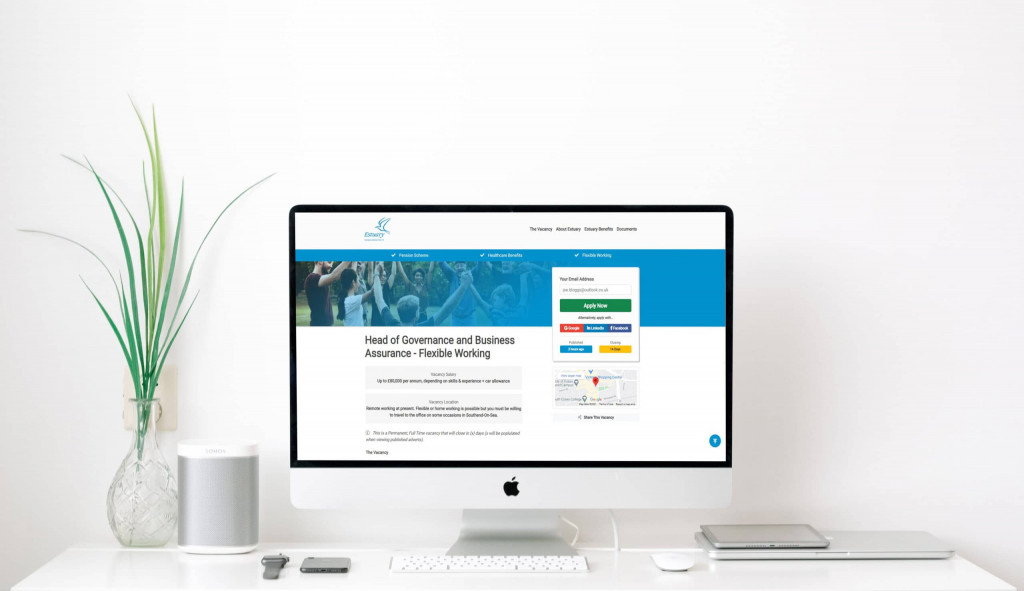The changing face of recruitment
Updated 23rd July 2024 | 5 min read Published 29th November 2022

Recession. Cost of living crisis. Ever-changing employee expectations.
External factors have radically changed recruitment strategies, resulting in many businesses having a rethink – in particular, regarding using recruitment agencies that continue to rely on traditional recruiting models.
Out with the old: a shift away from traditional recruitment agencies
Let me be clear: I’m not condemning external recruiters – frankly, they play a fundamental role for many businesses.
However, I urge those who use external recruiters to challenge whether their model has adapted to the times.
As the recruitment landscape changes, so must recruiters.
Pressure is on every business to review costs and save money, especially as we head into a recession.
Ask yourself, is the recruitment agency you use changing with the times and offering you a cost-effective solution? The average cost of a traditional recruitment agency is 15-20% of the candidate’s yearly salary; can you afford to pay that fee, especially if you’ve multiple vacancies?
I suggest you seek out agencies that have changed with the times – take IRIS Networx Services as an example of a modern external recruitment offering, where you pay a flat fee for a fully managed recruitment service that includes tailored attraction and search strategies to reach both passive and active candidates.
Managing your recruitment in-house
The current economic crisis poses the question: should recruitment be brought in-house as a cost-saving measure?
It can seem daunting being responsible for your recruitment, especially if you’ve been relying on agencies, but may be necessary to tackle the coming storm.
Although, a key consideration: moving recruitment in-house will often result in disappointment if you follow a traditional approach.
Five tips for managing your recruitment
As employee expectations have changed, so must you. Consider the following tips for managing your own recruitment:
1) Create transparent job ads
To ensure you have the right people applying for your jobs, ensure that your ads cover all the necessary information regarding your company and the role.
For example:
- Is the role hybrid?
- How many days a week are people expected to work?
- Is there overtime?
- What benefits are on offer?
- Can people start at flexible times?
The last thing you want is to invest time into interviewing a candidate only to find out that they’re looking to work from home when the role is office-based.
Not only is it a waste of time for both parties, but it also paints your company negatively, which could damage your reputation.
Customer story: Estuary Housing sought support from networx to further target the candidate audience
Read here2) Target your ideal candidates in the correct locations
If you’re looking to recruit graduates, there’s no point in advertising roles in your local newspaper.
Consider the candidates’ ages and use that to inform where you focus your efforts.
For example, if you’re looking to recruit Gen Z, TikTok is probably your best option, whereas Gen X will frequent Facebook and LinkedIn.
Not quite sure how to target talent on social media platforms such as TikTok? See what we’ve been doing on our IRIS TikTok for inspiration – click here.
3) Use HR software and an integrated Applicant Tracking System (ATS)
With HR software and an ATS, you can set up automated recruitment workflows and communications, making your recruitment process slicker and more professional, resulting in time back while also improving the applicants’ experience.
Key benefits also include being able to set criteria for those applying, meaning you only see the applicants who meet your needs, improving the quality of candidates.
With the cost of living crisis, your instinct may be to retrench and minimise spending, but investing in modern software can have a deflationary effect, lowering your overall cost.
4) Create an internal talent pool
One benefit of managing your own recruitment is that you can see all the potential candidates.
If you find an applicant you love, but they aren’t suitable for the applied role, see if you have any other vacancies that may suit them.
By doing so, you create talent pools, meaning more vacancies are filled by passionate people who suit your culture.
5) Think outside the box
Recruitment is a lot less black and white at the moment, with no correct way to attract talent, so go crazy and try something new.
It may be posting simple company videos on Tik Tok that highlight your company culture and how it is to work for you, incentivising existing employees to refer a friend or hosting an in-person open day where you conduct interviews on-the-spot.
The important thing is to authentically showcase your company.
Can recruitment be placed on hold?
I’m sure many are wondering if they can put recruitment on hold for the time being. At this time of recession and high job turnover, unfortunately, the answer is no!
Be mindful of the pressure and stress you are placing on existing employees who have to take on additional responsibilities when someone leaves.
A recent YouGov survey found that a third of employees are finding their workloads unmanageable due to staff shortages.
Don’t allow them to suffer from increased stress, face burnout and leave due to workloads.
Value your current talent as your most valuable resource.
Whether you find an agency that offers a cost-effective, modern recruitment offering or bring recruitment in-house, ensuring you’re well-staffed is crucial to success.
Unlock your power
Having great recruitment software and HR systems underpin your processes is a major benefit, helping you unlock the power to save time and focus your efforts on what delivers the most value.








